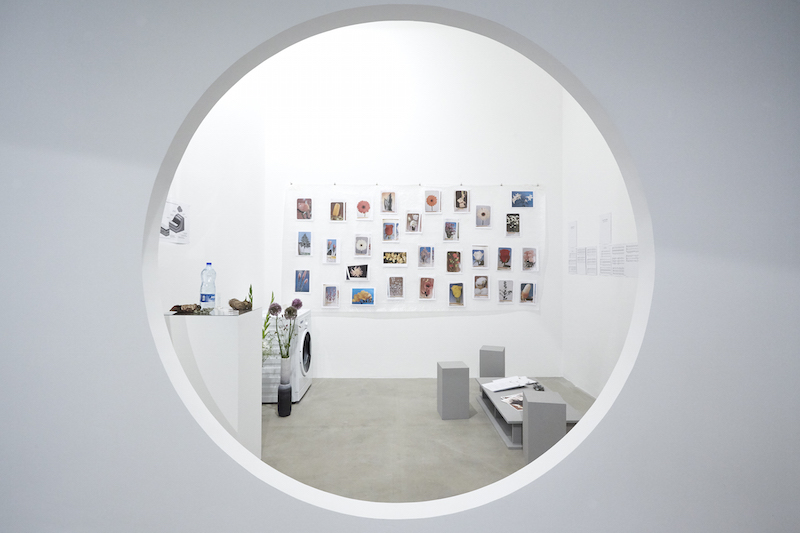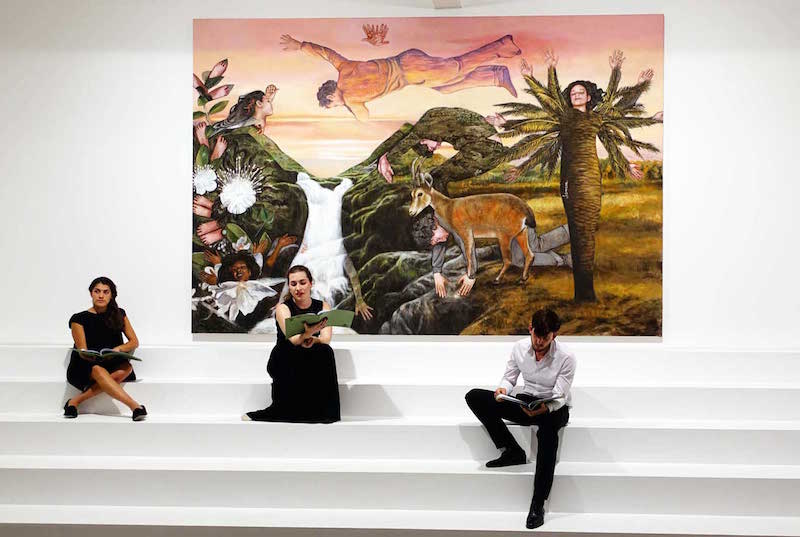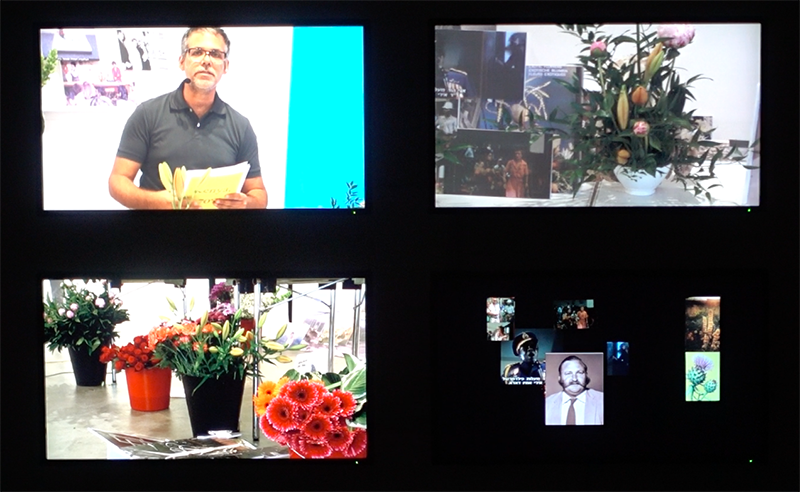Understanding transnational politics can sometimes require a more abstract, less direct means of investigation than political panel discussions or news interviews. With its boundaries being increasingly pushed, art can provide a radical arena for exploring areas such as these, which are often too sensitive and complex for politicians to touch on. This is essentially what Neuer Berliner Kunstverein (n.b.k.) and Center for Contemporary Art (CCA) in Tel Aviv are hoping to achieve through their project ‘Conditions of Political Choreography.’ Experimental in structure and process, the programme is made up of a research project and performance exhibitions. In the wake of global migration and local oppressions, the project aims to incorporate multiple perspectives and examine the formation of transnational memory, contrary to the trend of memorialization.
In the current segment of the programme, entitled ‘#EnactingCohabitation,’ the participating artists adopt distinct performative strategies for tackling the expansive topic of memorialization. Throughout the evening of live performative works, it feels like the artists genuinely believe smaller scale change is the answer to achieving anything longterm. In everyday discussions about contemporary politics, the discourse often centres around industry, with agriculture and nature generally side-lined. The participating artists return the products of nature to the fore in strikingly unconventional manners. Antje Majewski‘s performance of her work ‘The Song of Wheat’ takes place in front of a large painting, though to call it a painting may be too reductive; the work was birthed in a workshop in Tel Aviv where participants posed directly on the canvas, enacting the meaning of their Hebrew, Arabic, and Amharic first names. The performance involves three opera singers who narrate and chant a specially-composed song.
Yochai Avrahami draws a link between politics on a local scale and a broader international context within his work ‘Agriculture, Pride and Scruples’ (2017). Taking the format of a live television broadcast, pedagogy is united with humour as Avrahami tracks the political story of agricultural imports and exports, focusing on the Israeli flower trade. With the assistance of monologues from his sculptures, he provides a lively historical run-through from the first Jewish settlements in Palestine to the impacts of the founding of the state of Israel in 1948. The work is immensely entertaining, owing to Avrahami’s charm as a television host, the chaos of the whole endeavour, and the buckets of real flowers across his makeshift set; he occasionally pauses his speech to cut and arrange the plants during the show. With his interjections of anecdotes from his own background in flower arranging, the piece feels intimate but manages to do so without too much weight on autobiography. Seamlessly combining sculpture, performance, film, and collage, this work proposes a succulent alternative to the dry didacticism one may expect from a horticultural history lecture.
The final work of the evening has performative qualities yet veers more towards a participatory piece. In ‘Voices of the Next State,’ Israeli performance artist Omer Krieger hosts a discussion where speakers from the Middle East are invited to speak about their vision of the future. By holding this discussion in a gallery space, the atmosphere feels experimental: the attendees who come from various different backgrounds are engaged, with some even interrupting to ask questions or provide commentary. Krieger intends to make public this interpersonal exchange on a difficult topic, and the range of utopian stories result in a moving listening experience. Unfortunately, the invited perspectives come only from a panel of all-male speakers.
Amongst responses to global migration composed of racist backlash, artists are increasingly called upon to find ways to facilitate unity within society. The diversity of approaches undertaken by the artists demonstrates that there can be no singular way to enact change, but rather, that it is a learning process for all. What is most effective about these works is the optimism towards this possibility. To see this conversation and connection between CCA in Tel-Aviv and n.b.k. in Berlin points towards possibilities for cohabitation across oceans. At the same time, one cannot help but ask whether this will be enough to ensure better cohabitation? The artists have offered us extensive histories, and reminded their audiences of forgotten pasts. This is a crucial starting-point, but it will be interesting to see how the remainder of the n.b.k.’s program pans out. Antje Majewski and Yochai Avrahami’s performances can be viewed over the weekend.
Additional Info
NEUER BERLINER KUNSTVEREIN
‘Conditions of Political Choreography’
Performances: Jun. 16 – Jul. 16, 2017
Chausseestrasse 128/129, 10115 Berlin, click here for map





















